
Colombia, Dispatches, United States
OAS Asks State Department To Reconsider Colombian Journalist’s Visa Application
July 26, 2010 By Staff

Walter Lippman House, seat of the Nieman Foundation at Harvard University.
NEW YORK — The Organization of American States asked the U.S. State Department last week to reconsider its rejection of Colombian journalist Hollman Morris’ visa, the Colombian press reports.
Hollman Morris, a journalist whose investigative reporting on the connections between paramilitary violence and politics in war-torn Colombia has earned him and his family repeated death threats, was denied a visa this month to serve as a Nieman Fellow at Harvard University.
The hemispheric organization’s special rapporteur for freedom of expression, Catalina Botero, asked Secretary of State Hillary Clinton to reconsider the application, saying that Morris’ “trip to Harvard with his family guarantees their protection from serious threats they have received because of his journalistic work,” according to Colombian newspaper El Espectador.
In a country where security concerns often deter journalists from venturing into the countryside, Hollman and his borther Juan Pablo pride themselves on taking their cameras into the areas most devastated by the conflict. They produce a television show called “Contravía,” the Spanish term for going the wrong way down a one-way street.
The Morris brothers’ reporting has played a significant role in elucidating connections between politics and right-wing paramilitaries. In Colombia, over one third of Congress members have faced investigations for ties to illegal armed groups since 2006.
“The Contravía show and the Morris brothers have been doing incredible, very strong work, unearthing a hidden part of the Colombian conflict, which has often been caricatured,” said Mark Schapiro of the Center for Investigative Reporting, who profiled the Morris brothers in a video report in April 2009. “These guys clearly work in very difficult circumstances and take on very powerful interests. They’re in a very vulnerable spot.”
Documents released by Colombia’s attorney general’s office this year revealed that the country’s intelligence service, known as the DAS, had targeted Morris in a campaign to undermine his credibility and falsely link him to the FARC, a leftist guerrilla army. The documents specifically mention plans to request the suspension of Morris’ U.S. visa.
Harvard has protested the denial. “In the 60 years that foreign journalists have participated in the Nieman program, they have sometimes had trouble getting their own countries to allow them to come,” Nieman Foundation Curator Bob Giles wrote in an op-ed published in The Los Angeles Times. “Morris, though, is the first person in Nieman history to be denied the right to participate not by his own country but by ours. The denial is alarming.”
The rejection of Morris’ visa only months after the DAS files were made public has sparked an uproar among U.S. press freedom and human rights groups familiar with Morris’ work.
“Mr. Morris has been granted visas to visit the United States in the recent past to attend academic and journalistic events. He should not be denied one now,” the National Association of Hispanic Journalists told the State Department, according to a press release posted to the organization’s Web site.
The visa refusal forced the North American Congress on Latin America, a nonprofit group and publisher of the NACLA Report on the Americas, to postpone an award ceremony planned for Morris on June 8 to honor his investigative reporting.
According to NACLA, the State Department denied Morris’ visa under section 212(a) of the Immigration and Nationality Act, as amended by the USA Patriot act, barring visas from foreigners who have used their “position of prominence” to “endorse or espouse terrorist activity, or to persuade others to support terrorist activity or a terrorist organization.”
“In denying Morris a visa on these grounds, the State Department joins the Colombian government in tarring Morris a a ‘publicist for terrorism,’ in the words of Colombian President Álvaro Uribe,” NACLA said in a press release.
Current President Álvaro Uribe and President-elect Juan Manuel Santos have both publicly accused Morris of collaborating with the FARC, without providing evidence to substantiate those claims or charging Morris with a crime.
Press freedom and human rights organizations including the Committee to Protect Journalists and Human Rights Watch protested Uribe and Santos’ allegations, saying they put Morris’ life in danger.
“We see this as very serious, because it can cause the journalist’s death,” Carlos Lauria of the Committee to Protect Journalists told The Latin America News Dispatch earlier this year. “Making these accusations without any kind of evidence is irresponsible.”
The State Department has refrained from making a public statement about the visa rejection, citing privacy issues.
To learn more about the Morris brothers and Contravía, view the Center for Investigative Reporting’s profile, which was produced as part of a series entitled “The Investigators.”
Update – The State Department reversed its decision and Morris was granted his visa on July 27.
Image: Elizabeth Thomsen @ Flickr.
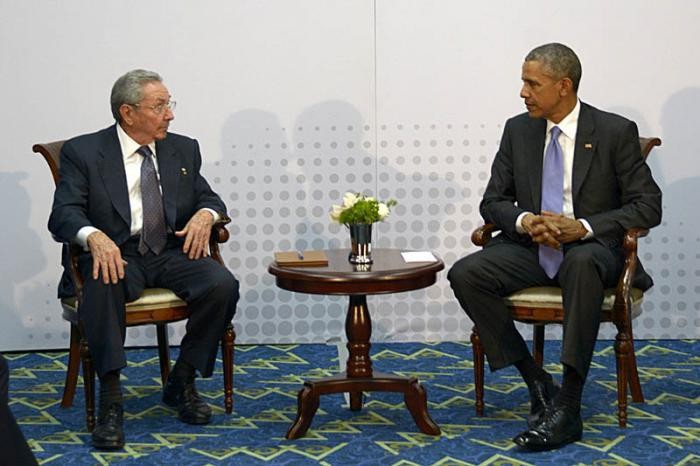
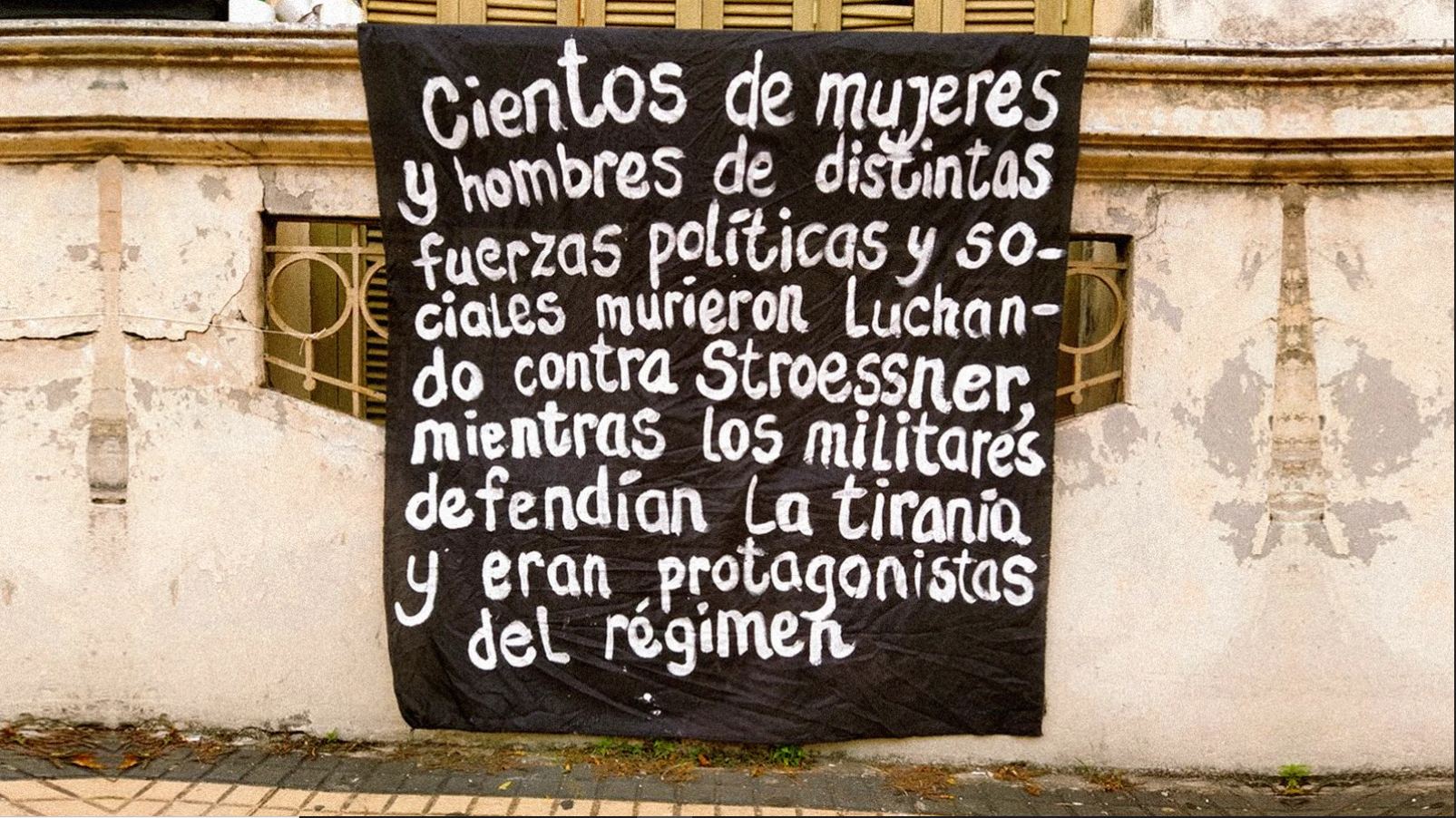
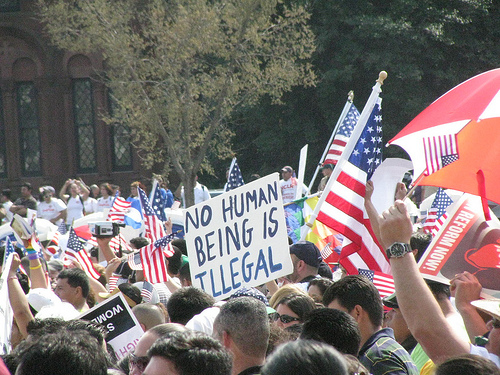
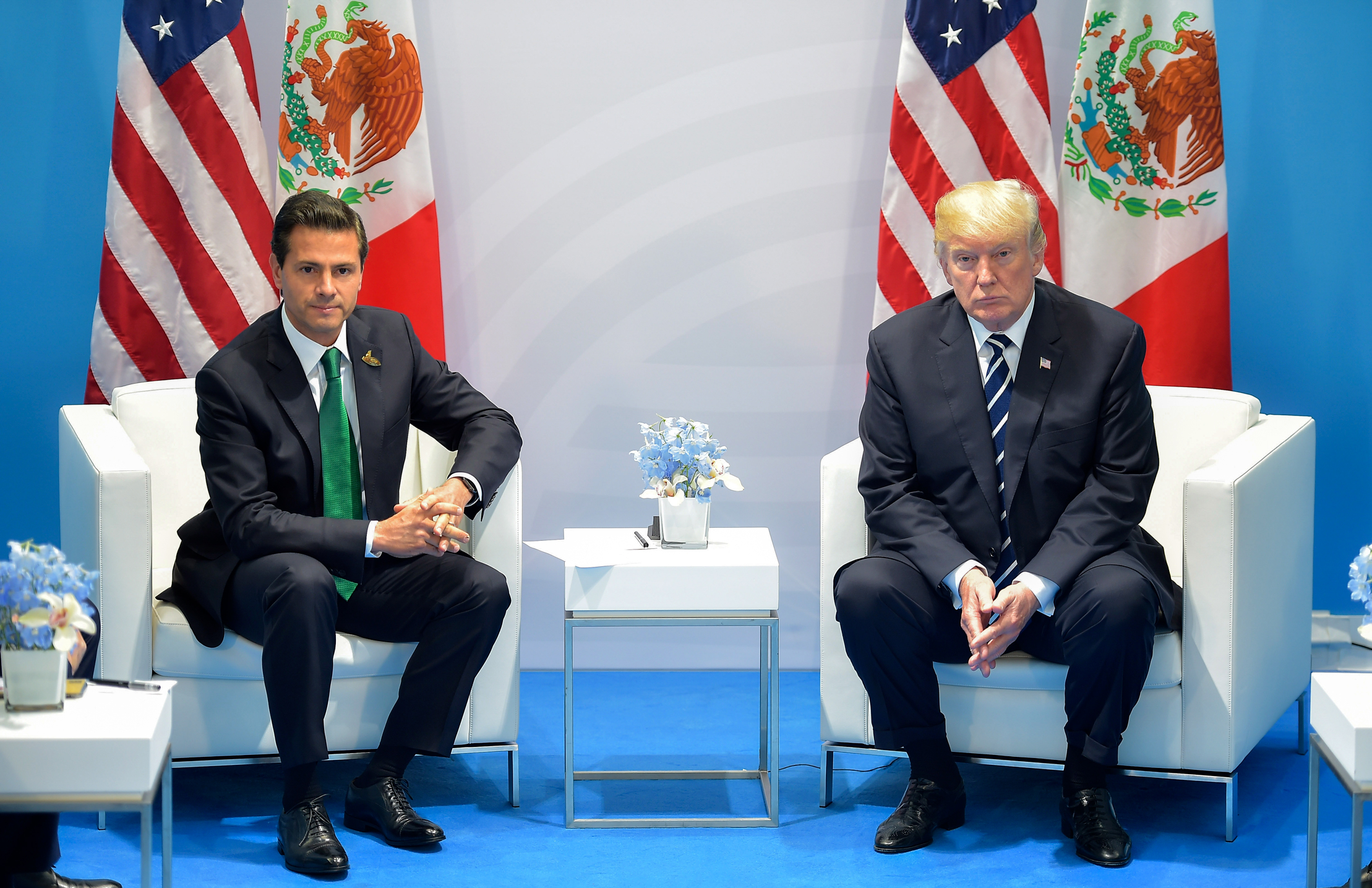
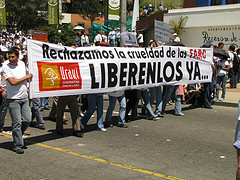
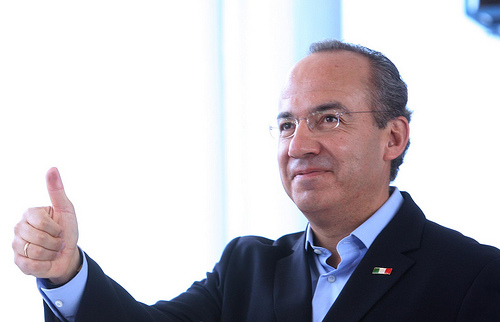
2 Comments
[…] Organization of American States has asked the U.S. to reconsider its refusal of Colombian journalist Hollman Morris’ visa to accept a fellowship at Harvard’s Nieman Institute. (You may remember Hollman Morris from […]
That the Obama administration could fall for such transparent vilification of Morris is inconceivable—particularly when one considers the dishonest source..
Comments are closed.